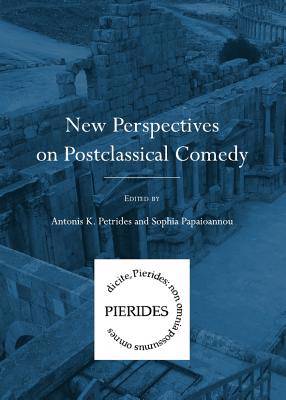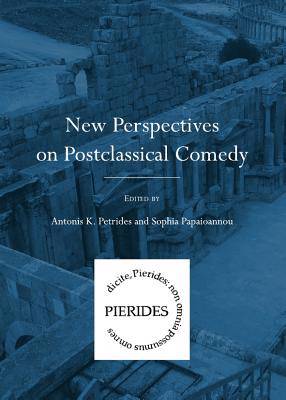
- Afhalen na 1 uur in een winkel met voorraad
- Gratis thuislevering in België vanaf € 30
- Ruim aanbod met 7 miljoen producten
- Afhalen na 1 uur in een winkel met voorraad
- Gratis thuislevering in België vanaf € 30
- Ruim aanbod met 7 miljoen producten
Zoeken
Omschrijving
PIERIDES II, Series Editors: Philip Hardie and Stratis Kyriakidis The re-emergence of Menander from the landfills of Egypt in the late-19th century and the subsequent discovery of the Bodmer Codex in the 1950s caused a sensation among scholars. After a period in which the primary editing and reconstruction of the substantially preserved plays and fragments was the main line of criticism, scholars were finally in a position to take a deep breath and look at Menander and New Comedy, both Greek and Roman, in wider contexts of interpretation and with fresh perspectives drawn from innovative work both in Classical and more modern studies. This book aims to showcase these new approaches to postclassical comedy. The individual contributions, six in total, approach New Comedy as theatrical performance, but also as a dynamic player in the socio-political discourses of the polis culture that gave birth to it. The chapters highlight continuities as well as discontinuities with the cultural and literary past of Athens and the Greek world, but mostly emphasise the progressiveness of New Comedy as a genre and its importance for the nascent culture of Hellenism and Rome thereafter. Blume's introductory chapter tells the story of Menander's re-emergence from the tenebrae in full detail. The other five chapters are dual in nature: expositional of a method, but also practical examples of it. They are arranged in a fashion which underlines the major theoretical underpinnings of New Comedy studies, as they are being developed in the present: Cultural Studies (David Konstan and Susan Lape), Intertextuality and Performance (Antonis K. Petrides and Rosanna Omitowoju), and Reception in Rome (Sophia Papaioannou).
Specificaties
Betrokkenen
- Uitgeverij:
Inhoud
- Aantal bladzijden:
- 220
- Taal:
- Engels
- Reeks:
Eigenschappen
- Productcode (EAN):
- 9781443824118
- Verschijningsdatum:
- 1/11/2010
- Uitvoering:
- Hardcover
- Formaat:
- Genaaid
- Afmetingen:
- 147 mm x 208 mm
- Gewicht:
- 453 g

Alleen bij Standaard Boekhandel
+ 111 punten op je klantenkaart van Standaard Boekhandel
Beoordelingen
We publiceren alleen reviews die voldoen aan de voorwaarden voor reviews. Bekijk onze voorwaarden voor reviews.










